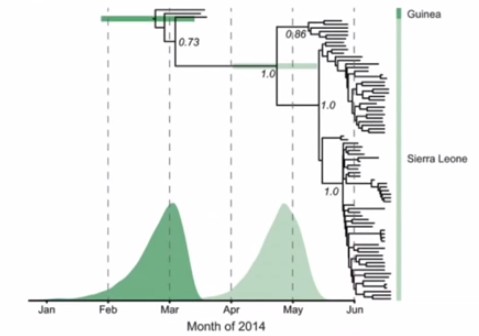The largest Ebola outbreak in history, which began in Guinea earlier this year before spreading to other West African nations, has become the subject of a gene sequencing study by a Harvard team already well-versed in similar viruses. The research has discovered that the current Ebola outbreak has already mutated hundreds of times and continues to mutate rapidly. Scientists will use the data from genome sequencing to find weaknesses in the virus, which can be attacked with drugs.
The Harvard team already is fluent and actively working on similar viruses in West Africa. The team had been working on Lassa Virus before taking on Ebola.

Pardis Sabeti, a computer geneticist at Harvard University, said that the team’s experience with Lassa Virus was helpful in understanding Ebola because of the similar symptoms of the two viruses, particularly hemorrhagic fever.
“If you look at the three published Guinean strains,” commented Sabeti, “these are all linked. These all appear to be one chain of events.
“It seems that there is one entry into Sierra Leone, that spread throughout.
“We see hundreds of mutations–over 300 mutations–that separate this virus from past viruses. We see 55 mutations that have just happened within the course of this outbreak event. And we also see hundreds of mutations that are happening within individuals–things that one day may become common in the population and fixed between individuals.
 “Many of those are functional, so we’re going to be paying attention to those.
“Many of those are functional, so we’re going to be paying attention to those.
“The understanding of the pathogenesis,” said Christian Happi, Director of the African Centre of Excellence for Genomics of Infections Disease in Nigeria, referring to the development of drugs or vaccines, “that actually provides crucial information for going on to develop whatever tools.”
Drugs and vaccines are built on protein sequences, which are build on the genome sequence. Scientists will be able to use the research data to see how genome sequences are changing and identify which parts of the Ebola virus will be vulnerable and which parts will disappear from the strain.
“The type of genome sequencing we do informs whether or not the drugs, the vaccines, the diagnostics that we are using are going to be viable as the virus continues to mutate and change,” said Sabeti.
The Harvard team has already been active in West Africa during the 2014 Ebola outbreak. They set up diagnosis and surveillance on the ground.
By James Haleavy
